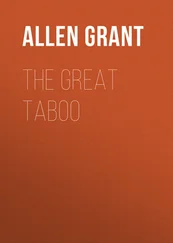Grant Allen - Babylon. Volume 3
Здесь есть возможность читать онлайн «Grant Allen - Babylon. Volume 3» — ознакомительный отрывок электронной книги совершенно бесплатно, а после прочтения отрывка купить полную версию. В некоторых случаях можно слушать аудио, скачать через торрент в формате fb2 и присутствует краткое содержание. ISBN: , Жанр: foreign_prose, на английском языке. Описание произведения, (предисловие) а так же отзывы посетителей доступны на портале библиотеки ЛибКат.
- Название:Babylon. Volume 3
- Автор:
- Жанр:
- Год:неизвестен
- ISBN:http://www.gutenberg.org/ebooks/47433
- Рейтинг книги:3 / 5. Голосов: 1
-
Избранное:Добавить в избранное
- Отзывы:
-
Ваша оценка:
- 60
- 1
- 2
- 3
- 4
- 5
Babylon. Volume 3: краткое содержание, описание и аннотация
Предлагаем к чтению аннотацию, описание, краткое содержание или предисловие (зависит от того, что написал сам автор книги «Babylon. Volume 3»). Если вы не нашли необходимую информацию о книге — напишите в комментариях, мы постараемся отыскать её.
Babylon. Volume 3 — читать онлайн ознакомительный отрывок
Ниже представлен текст книги, разбитый по страницам. Система сохранения места последней прочитанной страницы, позволяет с удобством читать онлайн бесплатно книгу «Babylon. Volume 3», без необходимости каждый раз заново искать на чём Вы остановились. Поставьте закладку, и сможете в любой момент перейти на страницу, на которой закончили чтение.
Интервал:
Закладка:
Yet in his own heart, when Colin once more declared he was mistaken, Hiram Winthrop, looking at that delicate sketch, did almost for the moment pluck up courage again, and agree with his friend that if only the public would but smile upon him, he, too, might really do something worth the looking at.
He went home, indeed, almost elated, after so many months of silent dejection, by that new-born hope. When he reached their rooms in the alley (for Colin, in his desire to save, still stood by him, in spite of altered fortunes) he found a large official envelope of French pattern lying casually upon the table. He knew it at once; it bore the official seal of the Académie Française. He tore open the letter hastily. Was it possible that this time they might really have hung him? What did it say? Let him see… A stereotyped form… ‘Regret to announce to you… great claims upon their attention… compelled to refuse admission to the painting submitted to their consideration by M. Winthrop.’
Hiram let the letter drop out of his hands without a word. For the third time, then, his picture had been rejected for the Paris Salon!
A day or iwo later, the agent to whom he always confided his works for the necessary arrangements, wrote to him with florid French politeness on the subject of its final disposal. Last year he had been able to give Monsieur but forty francs for his picture, while the year before he had felt himself justified in paying sixty. Unfortunately, neither of these pictures had yet been sold; Monsieur’s touch evidently did not satisfy the exacting Parisian public. This year, he regretted to tell Monsieur, he would be unable to offer him anything for the picture itself; but he would take back the frame at an inestimable depreciation on the original figure. He trusted to merit Monsieur’s honoured commands upon future occasions.
Those four pounds were all the money Hiram had yet earned, in four years, by the practice of his profession; and the remains of the deacon’s patrimony would hardly now suffice to carry him through another winter.
But then, that winter, Gwen was coming.
If it had not been for the remote hope of still seeing Gwen before he left Rome for ever, Hiram was inclined to think the only bed he would have slept in, that dreary, weary, disappointing night, was the bed of the Tiber.
CHAPTER XXX. MINNA’S RESOLUTION
As Minna Wroe opened her eyes that morning in the furnished house in the Via Clementina, she could hardly realise even now that she was actually at Rome, and within half-an-hour’s walk of dear Colin.
Yes, that was mainly how the Eternal City, the capital of art, the centre of Christendom, the great museum of all the ages, envisaged itself as of course to the frank barbarism of poor wee Minna’s simple little bosom. Some of us, when we go to Rome, see in it chiefly a vast historical memory – the Forum, the Colosseum, the arch of Titus, the ruined Thermæ, the Palace of the Caesars. Some of us see in it rather a magnificent panorama of ancient and modern art, the Vatican, St. Peter’s, the Apollo, the Aphrodite, the great works of Michael Angelo, and Raphael, and the spacious broad-souled Renaissance painters. Some see in it a modern gimcrack Italian metropolis; some, a fashionable English winter residence; some, a picturesque, quaint old-world mediæval city; some, a Babylon doomed before long to a terrible fiery destruction; and some, a spiritual centre of marvellous activity, with branches that ramify out in a thousand directions over the entire civilised and barbarous world. But Minna Wroe thought of that wonderful composite heterogeneous Rome for the most part merely as the present home and actual arena of Colin Churchill, sculptor, at Number 84 in the Via Colonna.
It had been a grand piece of luck for Minna, the chance that brought her the opportunity of taking that long-looked-for, and much desired journey. To be sure, she had been very happy in her own way down in the pretty little rural Surrey village. Mr. O’Donovan was the kindest and most fatherly old clergyman that ever lived; and though he did bother her just a little now and then with teaching in the Sunday school and conducting the Dorcas society, and taking charge of the Mothers’ meeting, still he was so good and gentle and sympathetic to her at all times, that Minna could easily have forgiven him for twice as much professional zeal as he ever himself displayed in actual reality. Yet for all that, though the place was so pretty, and the work so light, and the four little girls on the whole such nice pleasant well-behaved little mortals, Minna certainly did miss Colin very terribly. Some employers would doubtless have said to themselves when they saw the governess moping and melancholy in spite of all the comfort that was provided for her: ‘Well, what more on earth that girl can possibly be wanting really passes my poor finite comprehension.’ But Mr. O’Donovan knew better. He was one of those people who habitually and instinctively put themselves in the place of others; and when on Sunday mornings after the letter with the twenty-five centesimi stamp had arrived at the rectory, he saw poor Minna moving about the house before church, looking just a trifle tearful, he said to himself with a shake of his dear kindly old broken-nosed head: ‘Ah well, ah well; young people will be young people; and I’ve often noticed that however comfortable a girl of twenty-two may be in all externals, why, God bless my soul, if she’s got a lover five hundred miles away, she can’t help crying a bit about him every now and then – and very natural!’ Minna gratefully observed too, that on all such occasions Mr. O’Donovan treated her with more than his usual consideration, and seemed to understand exactly what it was that made her rather sharper than her wont with the small feelings of the four little ones.
And Mr. O’Donovan never forgot his promise to Minna to look out for a family who were going to Rome and who wanted an English governess. ‘But, bless my soul,’ he thought to himself, ‘who on earth would ever have believed beforehand what a precious difficult thing it is to find a person who fulfils at once both the conditions? People going to Rome, dozens of ‘em; people wanting a governess, dozens of ‘em also; but people going to Rome and wanting a governess, I regret to say, not a soul to be heard of. Sounds just like a Senate House problem, when I was a young fellow at Cambridge: If out of x A’s there are y B’s and z C’s, what are the chances that any B is also a C?
Answer, precious little.’ Indeed, the good old parson even went the length of putting an advertisement into the Guardian twice a year, without saying a word about it to Minna: ‘A Clergyman (beneficed) wishes to recommend highly qualified Young Lady as English nursery Governess to a Family wintering at Rome.’ But he never got a single answer. ‘Dear, dear,’ the kind old gentleman muttered to himself, on each such occasion when the post passed by day after day without bringing him a single one of the expected applications, ‘that’s always the way, unfortunately. Advertise that you want a governess, and you have fifty poor young girls answering at once, wasting a penny stamp a-piece, and waiting eagerly to know whether you’ll be kindly pleased to engage ‘em. Advertise that you want a place as governess, and never a soul will take a moment’s notice of you. Supply and demand, I believe they call it in the newspapers; supply and demand; but in a Christian country one might have imagined they’d have got something more charitable to give us by this time than the bare gospel of Political Economy. When I was young, we didn’t understand Political Economy; and Mr. Malthus, who wrote about it, used to be considered little better than a heathen. Still, I’ve done my duty, as far as I’ve been able; that’s one comfort. And if I can’t succeed in getting a place for George Wroe’s daughter to go and join this wonderful clever lover of hers at Rome (confound the fellow, he’s making a pot of money I see by the papers; why the dickens doesn’t he send over and fetch her?) – well anyhow, dear Lucy’s children are getting the benefit of her attention, meanwhile, and what on earth I should do without her now, I’m sure I haven’t the slightest conception.’
Читать дальшеИнтервал:
Закладка:
Похожие книги на «Babylon. Volume 3»
Представляем Вашему вниманию похожие книги на «Babylon. Volume 3» списком для выбора. Мы отобрали схожую по названию и смыслу литературу в надежде предоставить читателям больше вариантов отыскать новые, интересные, ещё непрочитанные произведения.
Обсуждение, отзывы о книге «Babylon. Volume 3» и просто собственные мнения читателей. Оставьте ваши комментарии, напишите, что Вы думаете о произведении, его смысле или главных героях. Укажите что конкретно понравилось, а что нет, и почему Вы так считаете.












